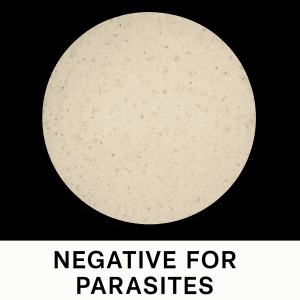
Healthy Bellies, Happy Puppies: Our G.I. Protocol at The French Bulldog of Colorado
At The French Bulldog of Colorado, our number one priority is raising strong, healthy puppies—and that starts from the inside out. We take gut health seriously, which is why we follow a thorough gastrointestinal (G.I.) protocol to keep our puppies parasite-free and thriving.
Our Deworming Schedule
Parasites are a natural part of a puppy’s early environment, but we stay ahead of them with a proactive approach. We start our deworming program at two weeks of age and repeat it every two weeks until your puppy goes home—this means they receive treatments at 2, 4, 6, 8, 10, and 12 weeks of age.
Here’s what we use and what each product targets:
• Pyrantel Pamoate (Nemex® or similar)
Targets: Roundworms and hookworms
This gentle dewormer is safe for young puppies and effective at removing the most common intestinal worms.
• Fenbendazole (Panacur®)
Targets: Roundworms, hookworms, whipworms, and Giardia (a common protozoan parasite)
This broad-spectrum dewormer is often given in a 3-day series to target stubborn parasites like Giardia.
• Toltrazuril or Ponazuril
Targets: Coccidia
If needed, we also give a preventative treatment for coccidia, another intestinal parasite that can cause loose stool in puppies, especially under stress.
Fecal Testing: Proof of Clean Health
Starting at 8 weeks old, we run routine fecal flotation tests on all our puppies every two weeks. These tests are performed under a microscope to check for any signs of intestinal parasites. We also complete one final fecal test just before pickup so you can be confident your puppy is healthy and parasite-free when they come home.
✅ Every puppy goes home with a full medical record, including documentation of all deworming medications and copies of their negative fecal test results.
Here’s an example of what we look for—and what we’re proud to see before each puppy leaves:
Why This Matters
Young puppies are more vulnerable to parasites, which can lead to diarrhea, poor weight gain, and even more serious health issues. By following this detailed G.I. protocol, we’re setting your puppy up for success—and saving you from potential stress and vet bills down the road.
Have questions about what’s included in your puppy’s wellness plan? We’re always happy to walk you through it.
Looking for a healthy, happy Frenchie? Check out our available puppies.
FAQ: Deworming & Puppy Health
A: Roundworms, hookworms, coccidia, and Giardia are the most common intestinal parasites in young puppies.
A: Symptoms can include soft stool, visible worms in feces, bloated belly, or scooting. However, many infected puppies show no signs—this is why testing is so important.
A: It’s a microscopic test used to check for intestinal parasites. We perform this test starting at 8 weeks and provide a final negative test before your puppy goes home.

